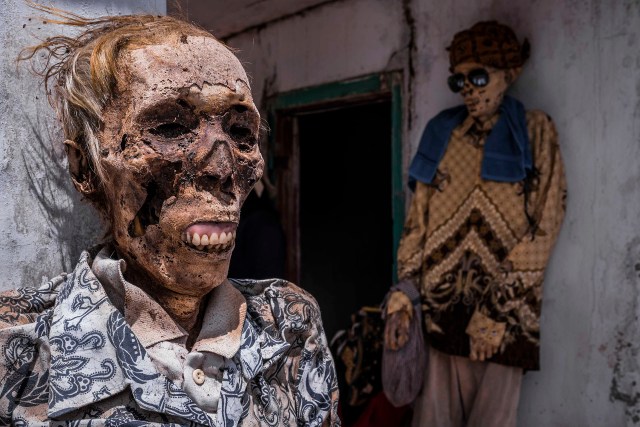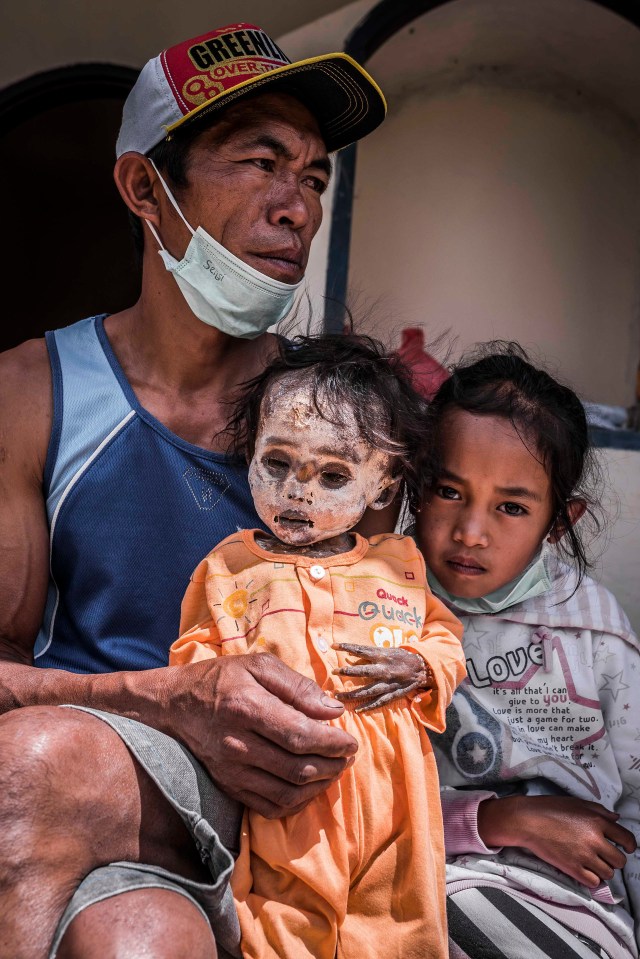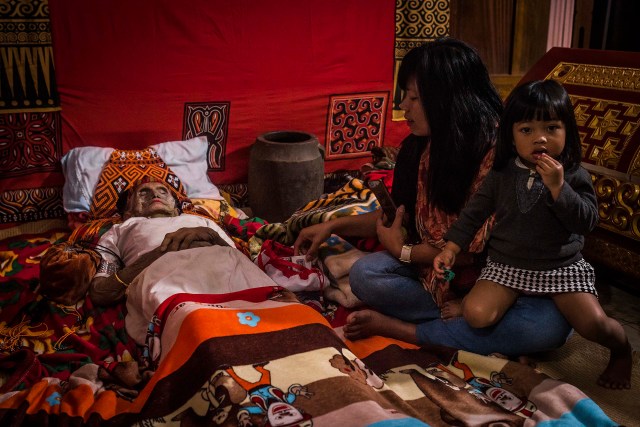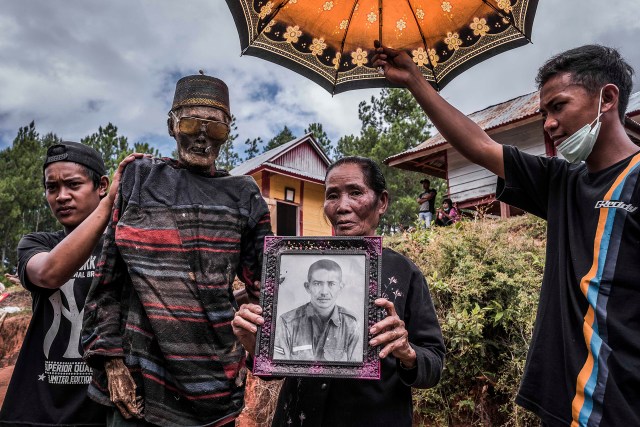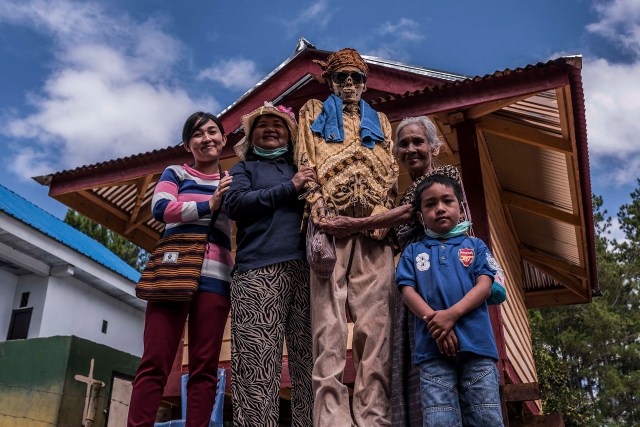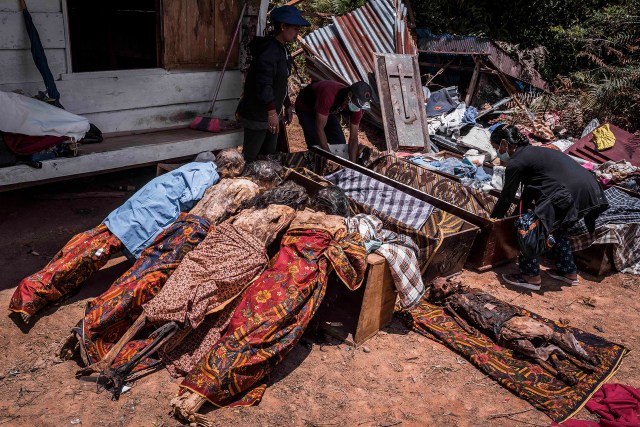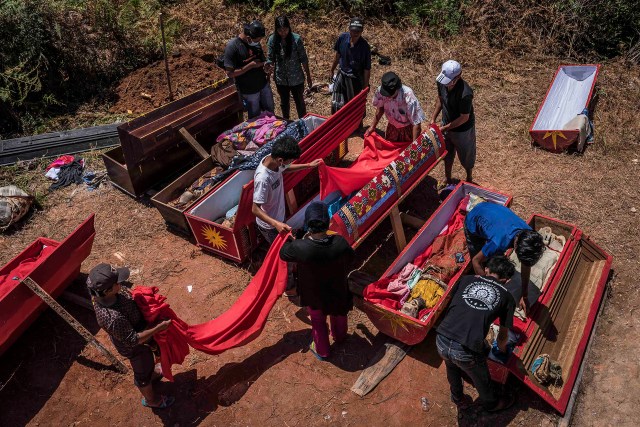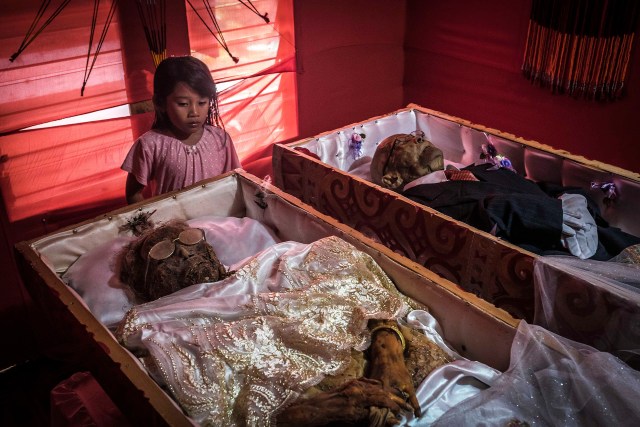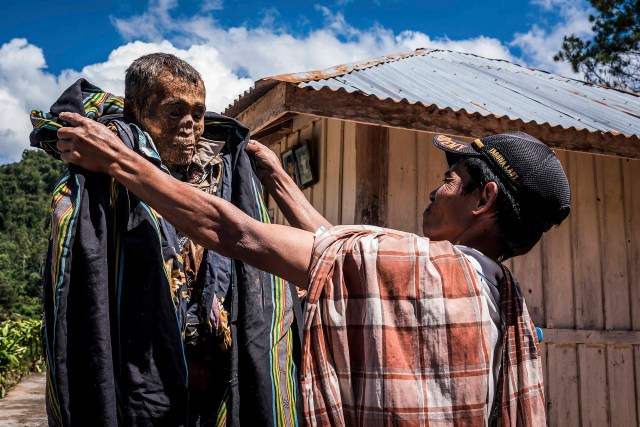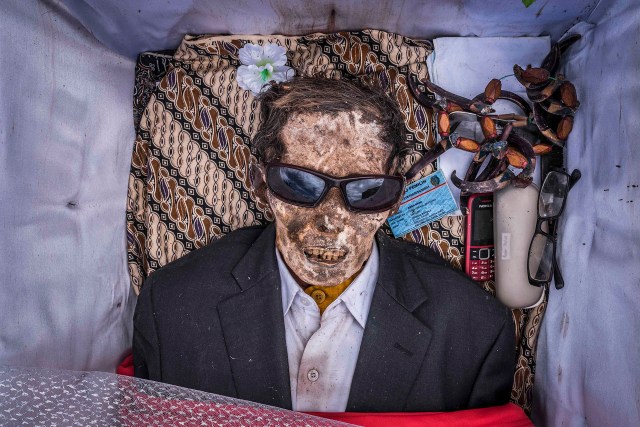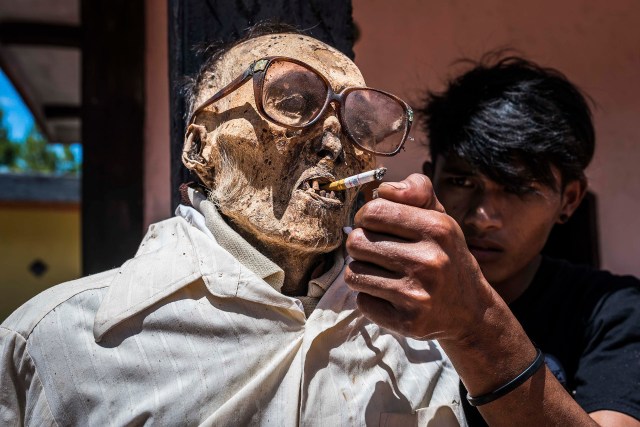
Una tarde, poco antes de las siete, Elisabeth Rante corre una cortina del pasillo e ingresa a la habitación principal de su casa junto a una periodista. “Papa… Papa”, susurra. “Tenemos visitas”. Unos pasos más atrás, uno de los hijos de la pareja llega con una plato de arroz y otro de pescado con chiles. Es la comida para Papa, reseñó Infobae.
“Despierta, Papa, es hora de la cena”, le dice Elisabeth. “Ella te va a sacar una foto”, le avisa, señalando a la periodista del National Geographic que los acompaña.
La escena podría ser similar a la de cualquier pueblo rural del planeta, de no ser por una excepción: Petrus, el esposo de Elisabeth, lleva varias semanas de fallecido. Pero está allí, recostado sobre una cama y cubierto por una sábana a cuadros, como si estuviese durmiendo.
Cuatro días más tarde habrá un funeral masivo para más de cien personas, en el que se realizará un servicio religioso cristiano y se comerá cerdo, verduras y arroz. Petrus será colocado entonces en un ataúd pero volverá a su casa, donde seguirá compartiendo la vida familiar y le prepararán cuatro comidas diarias durante otros cuatro meses hasta su entierro previsto para diciembre. Hasta entonces, su familia se referirá a él como makula, el enfermo.
Los toraja que habitan en la región de Sulawesi, en Indonesia, no creen que la muerte sea un hecho abrupto, como en Occidente, sino un proceso paulatino y lento en el que el alma está presente en un cuerpo sin vida y se va despidiendo de a poco. Por eso, las familias conviven con sus muertos durante días, semanas, meses y a veces hasta años, a la espera de la llegada de algún familiar que se encuentra lejos.
Para los toraja no existen diferencias tajantes entre el mundo de los vivos y el de los muertos. Por eso, aun después del entierro, es habitual que los toraja saquen periódicamente los cuerpos de sus familiares de sus tumbas para llevarlos a su casa, bañarlos, vestirlos con ropas nuevas y ofrecerles alguna de sus comidas o bebidas favoritas.
Misionarios holandeses llegaron a esta región en el siglo XIX. Hoy, los toraja son un enclave cristiano -protestantes y católicos- en un país de mayoría musulmana. Un cristianismo que se ha fusionado con las creencias tribales locales.
